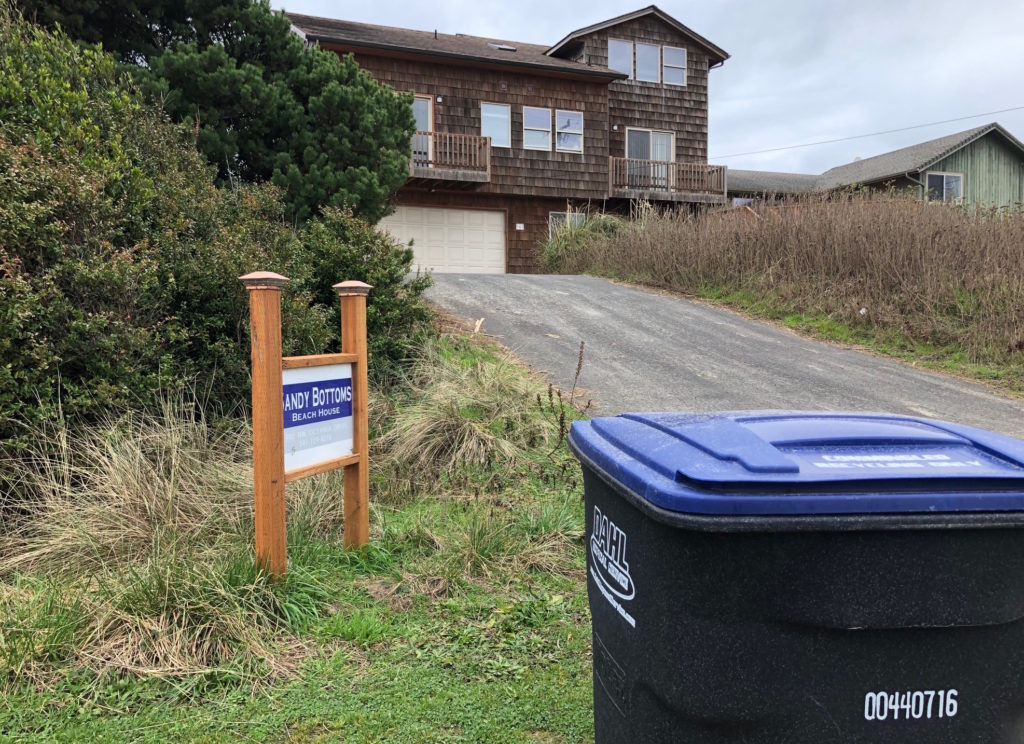
By KENNETH LIPP/YachatsNews
After seven years of workshops, public comment, deliberations, ballot measures and lawsuits, Lincoln County commissioners Wednesday established drastically lower limits for the number of vacation rentals allowed in unincorporated areas.
Commissioners voted unanimously for a license cap that would drop the number of vacation rental licenses from 500 to 181 in unincorporated areas of the county. That’s less than 40 percent of the current total, although it could take a decade to achieve that reduction.

In their longest regular meeting since April, commissioners decided on two final elements of the vacation rental ordinance they adopted in October 2021 and began implementing last August — the boundaries of seven geographic zones and caps on vacation rental licenses within them.
There are five zones west of Highway 101, separated north to south by Depoe Bay, Yaquina Bay, Beaver Creek and Alsea Bay bridges and excluding any cities. In those zones vacation rentals will be limited to 2 percent of the total number of tax lots. Three of those zones will have single-digit license caps.
On the east side of Highway 101 there are two large zones north and south of Oregon Highway 20. The license limit in those will be 1 percent of the total tax lots.
Commissioners are scheduled to approve a final order drafted by staff next week.
No licenses will be taken away to meet the limits. The county will get to the 2 percent limit by property sales and transfers, voluntary surrender or loss due to code violations. A county ordinance prevents the transfer of a vacation rental license to the new owner of a property that currently has one.
Since the county put a moratorium on new licenses in 2020, the total number of vacation rental licenses outside cities dropped from about 600 to just over 500, a rate of attrition of about 100 every three years. At that rate, it will take at least nine years for the county to drop to 181 licenses, the total number allowed in all zones.
A sheriff’s office spreadsheet shows the vast majority of owners who surrendered licenses since 2020 did so when the property was sold. Others were canceled at the owners request, and 20 were taken off the books when the Cavalier Condominiums in Lincoln City changed its use.
How Ordinance 523 came about
The commission has been working on vacation rental regulations for at least seven years, since first adopting a licensing system and occupancy rules. But until this week it did not have a ceiling on the number of licenses.
However, municipalities within the county such as Yachats, Newport and Lincoln City did impose license limits – resulting in a more than tripling of vacation rentals in unincorporated areas to 600 between 2016 and 2020.
Facing pressure from community members — who would soon form a political action committee to get their proposal on the ballot — the commission imposed a moratorium on new licenses in March 2020. It wanted time to craft an ordinance addressing complaints about crowding, noise, trash, septic systems and other issues associated with vacation rentals.
It wasn’t until November 2020 that it received a proposed regulatory framework.
Among its notable facets:
- Reduces occupancy to two people per bedroom plus another two per dwelling that applied to all times of day to limit parties or events;
- Requires a septic system inspection and correction of any deficits it finds, at the same time determining a maximum septic capacity that could further limit occupancy;
- Creates an administrative hearing process to address complaints, and;
- Creates seven geographic zones with some kind of limit on the percentage of the tax lots that can have a licensed vacation rental.
Still contending with the pandemic, the wildfire recovery in Otis and the retirement of county counsel/administrator Wayne Belmont, they extended the license moratorium twice more. They did not adopt Ordinance 523 until November 2021.
For a while, it was too little, too late.
15neighborhoods
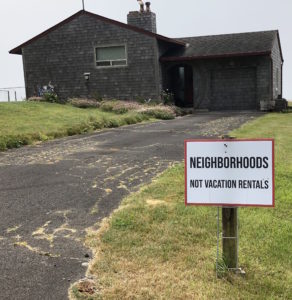
By mid-2020, some residents of unincorporated areas who’d been bringing their concerns about vacation rentals to commissioners for years had waited long enough.
Fronted by Monica Kirk of the Miroco area near Otter Crest, they organized 15neighborhoods and hired an attorney to help draft a ballot measure, then began circulating a petition to get that measure on the ballot.
Ballot Measure 21-203 contained many provisions similar to those in Ordinance 523, including tighter occupancy limits and septic system requirements. But it also called for a five-year phase out of all vacation rental licenses in unincorporated residential zones and an immediate, permanent moratorium on new licenses.
Commissioners and Belmont went on record on multiple times saying they believed the measure would constitute an unlawful taking.
Voters resoundingly approved the ballot measure in November 2021 – a week after commissioners adopted Ordinance 523 in an effort to dampen support for it.
Within days, a lawsuit from vacation rental owners organized by an industry association stopped the measure in its tracks, and eventually for good.
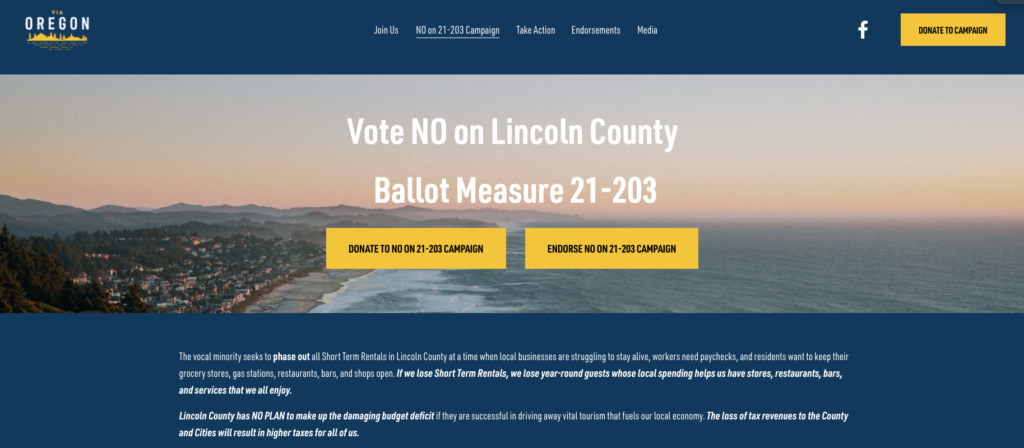
ViaOregon
ViaOregon first appeared in summer of 2020, campaigning against Ballot Measure 21-203 and advocating for rental owners during commission meetings.
ViaOregon’s members filed lawsuits against the ballot measure and the commission’s ordinance. The rental owners challenged both laws in Lincoln County Circuit Court and in petitions to the Oregon Land use Board of Appeals. Commissioners reimposed their moratorium pending the outcome of the litigation.
A single legal challenge prevailed. The land use board ruled last August that the ballot measure was an illegal land use regulation because it prohibited a previously approved non-conforming use from continuing. Ordinance 523 was back in effect.
Vacation rental owners have filed two new lawsuits challenging the ordinance. Hearings are scheduled in February. The county is confident it will prevail in the lawsuit since its ordinance is a licensing action, which have withstood court challenges elsewhere.
Roll out
After LUBA’s ruling, county commissioners and the sheriff’s office started filling in gaps in Ordinance 523 and notifying owners of enforcement deadlines. Owners have until May 1 to begin imposing occupancy limits and until the end of the year to submit septic reports.
After taking more public input and discussing the matter during its first meeting of the year, the commission reached a milestone on Wednesday by erasing the last two question marks in the ordinance.

Newly-elected commissioner Casey Miller, who had suggested during a previous meeting that he might be willing to re-examine the ordinance’s requirements for the number of zones, said it was “about the best we can do for seven areas.”
“I don’t see a large compelling reason to change them,” said chair Kaety Jacobson, noting that they did receive public comment suggesting slight adjustments. On commissioner Claire Hall’s motion, they unanimously agreed to use the four bridges and two highways as boundaries.
Jacobson asked to first address limits in the two zones east of Highway 101. She said although these two are the least dense with vacation rentals at 0.85 and 0.72 percent of tax lots, respectively, they also have limited potential for development.
“Short-term rental growth would likely be taking existing homes,” Jacobson said. “So I certainly don’t want to see those go over 1 percent.”
Hall and Miller both agreed they were comfortable capping anywhere between existing levels and 1 percent.
They moved on to discuss coastal zones, with Jacobson saying she would like those zones to have similar caps to ease compliance.
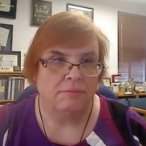
Hall asked, “So, if you’re looking at 1-2 percent for each of these five regions, so that would mean a very low ceiling. Realistically, no opportunity for licenses for some time … Barring something unforeseen, a natural disaster or something else, it could take many years or even decades for some of those areas to get down to a 2 percent cap.”
“That’s where I’m currently at,” Jacobson said.
“I’m a little surprised, I thought I was going to be the aggressive one from the perspective of caps,” Miller said, adding that he didn’t want to see percentages grow but thought a reduction to 1 or 2 percent seemed like a lot.
Commissioners recessed briefly to calculate 2 percent for each coastal zone.
With those numbers in front of them, Hall said she worried 2 percent across the board would be too much of a “one-size-fits-all solution”.
“Certainly I think I’m closer to where you are than I am deviating from it, but there’s a whole lot of variables that we have to look at here,” she said, among them the strong voter sentiment in passing Ballot Measure 21-203, as well as planned developments designed to allow second and vacation homes.
“Maybe there’s not a simple, clean answer to that unless we get to assigning caps by neighborhoods, and I don’t think anybody wants to go down that route,” Hall said.
She pointed to zone five, from the Alsea Bay Bridge to the Lane County line, where there are currently 90 licenses – about 23 percent of all tax lots. Reducing it to 2 percent would only allow eight licenses for that area.
Miller said he was also concerned that the approach was lacking in nuance, but was persuaded to err toward a lower cap and discuss amending the ordinance later to account for planned communities that wanted rentals.
Commissioners ultimately agreed to 2 percent for zones one through five along the ocean and 1 percent in the eastern zones. That means up to 17 and 12 licenses could be issued in zones six and seven, respectively.
In zone four, between Beaver Creek and Waldport and including the vacation rental hotbed of Bayshore, 26 licenses will be allowed, compared to the current 139.
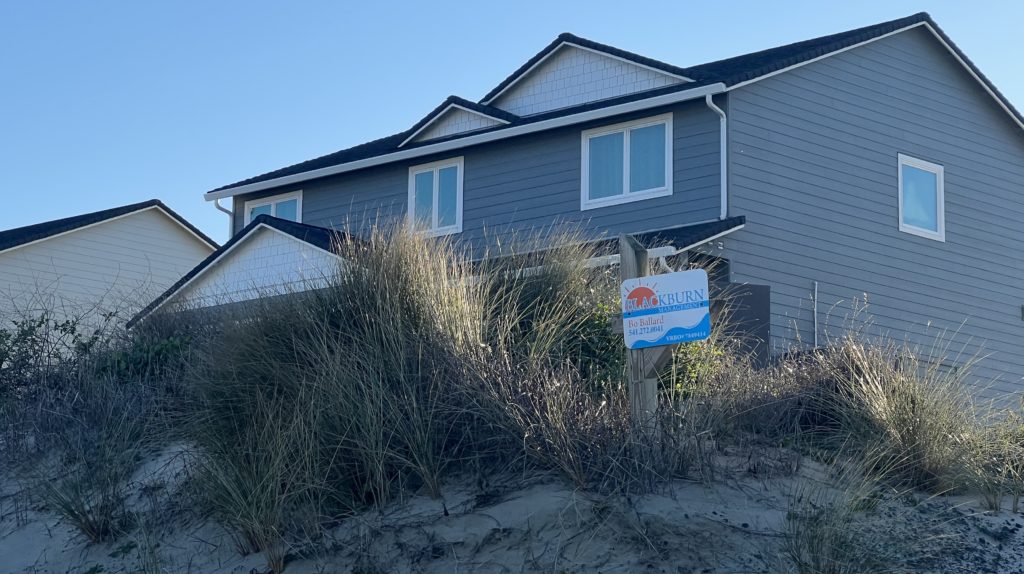
Rental owners respond
ViaOregon’s Jamie Michel addressed commissioners during the public comment period Wednesday, reading a letter from the owners of a vacation rental on Oceana Drive in Bayshore.
The four bedroom house is licensed to sleep 14 guests, and to stay compliant with septic regulations, the owners spent thousands on a water treatment system, Michel said. Under the new guidelines, their occupancy drops by four, depriving them of rental revenue. The letter also accused commissioners of trying to prevent large families from coming to the coast.
Additionally, the house is within a homeowners association that explicitly allows vacation rentals, and they don’t believe it is fair or lawful to deprive them of uses within their association contract.

In an email Thursday to YachatsNews, Michel said ViaOregon is “dismayed and disappointed” with commissioners’ decision and accused them of acting contrary to state law.
“Last year, a group of affected homeowners challenged the ballot measure, because state law recognizes their right to continue the lawful short term rental use of their homes,” Michel said. “LUBA invalidated the ballot measure, because it is illegal for counties to forcibly end that protected use.”
Michel said commissioners are again trying to forcibly end vacation rentals, and, “Ending the use in a sneakier fashion is still ending the use, and remains unlawful.”
15neighborhoods responds
Kirk raised an issue with commissioners Wednesday — the case of a house that’s east of the highway but still by the ocean. The owner of one such home plans to make it a vacation rental as soon as licenses open, but a 250-foot buffer between vacation rentals, as was previously discussed, would prevent that.
In an email to YachatsNews, Kirk said 15neighborhoods steering committee members watched the meeting and were pleased with the caps set by commissioners, but felt the limits didn’t go far enough.
“Although commonly adopted by local government, capping neither restores workforce housing nor preserves neighborhoods,” Kirk wrote. “Every (vacation rental) is one less long-term housing opportunity for Lincoln County’s workforce.”
Kirk suggested adding a phase-out of the annual licensing program, requiring licensees to either live in Lincoln County or in the home they rent and restricting owners to just one license to incentivize sale or change of use.
A five-year phase out would earn the organization’s endorsement, Kirk said.
Is it over?
“This is not the end of the process, but it’s certainly a major milestone,” Hall said Thursday.
The county still has work to do to implement the administrative hearings process for complaints and raising license fees.
Commissioners also decided to schedule a workshop to discuss ideas from the meeting not related to license caps, including several suggested by Kirk.
- Kenneth Lipp is YachatsNews’ full-time reporter and can be reached at KenLipp@YachatsNews.com



I was thinking about how large, newly planned motels and existing motels and hotels will be affected by the vacation rental ordinance, and if large corporations are being treated the same? Is this really a fair representation of a county zone regulation? Is this going to increase the hotel and motel vacation business? What was the reason given for this change in the first place? Has the county looked carefully at the impact of long-term occupancy and growth of the county, and then also what are the people of the state going to perceive as far as visiting and moving to Lincoln County? Is this about some sort of tax revenue increase that is hidden from the truth? I think we must all think very carefully before we act on a change that affects so many homeowners and also the people of the state of Oregon. We may end up with many homes for sale and in default because of this change, and then what do we get? One thing always leads to another so let’s think this over.
Short-term rentals aren’t homes, they’re structures being used for a commercial purpose. Like hotels without the supervisory/service staff generally found at hotels and motels. They are investments, income producing properties, not someone’s home. Long-term rentals can be an individual’s or family’s home, since the same people may live in an apartment, condo, duplex or single family home for years — while still producing income for the owner of the property.
Anyone who currently owns a short-term rental in unincorporated Lincoln County can continue to use the property to earn income — by using it as a long term rental. It’s not as if property owners are being deprived of using their property in a residential zone to produce income. No different then zoning that prevents a property owner from turning a residential structure into a store or a machine shop
A 2% rule in my neighborhood would reduce our current number of rentals from its current 33% level, which would be a welcome outcome. However, the overcrowding of my neighborhood during the high rental seasons will continue until rental owners decide to sell or lose their licenses due to violations. This decision by the county to allow this high percentage to remain in my neighborhood unchecked for years prior and to come, is upsetting to say the least.
A more fair and just system would be to reduce percentages per neighborhood or enforce a 250 foot rule for all neighborhoods.
The fact that I have to consider moving out of my neighborhood to find some peace is something the board of commissioners needs to take into consideration when setting this STR limits.
Thank you for your time,
In my opinion the Lincoln County commissioners have made a really stupid decision in limiting vacation rentals to such a low number. This will cost jobs in Lincoln County where we pretty much win for the number of people living in poverty. The won’t help the housing problem because retirees will still pay premium dollars for our real estate. Have a better enforcement solution and higher vacation rental license fees make better sense.
This is great. Everyone is hiring and obviously there is nowhere for the workers to live due to all the short term rentals. We have a housing crisis. People say this will hurt the economy but you have to have a place for the workers to live if you want to live in paradise.
Couldn’t agree more,,,
So, there is a link in the article that says “sheriff’s office spreadsheet shows the vast majority of owners who surrendered licenses since 2020′ and there is a column that says “new owner, new license”. What does that mean? From what I can see, the 2016 ruling said licenses were not assignable after the sale of a home. There has been a moratorium on new licenses since 2020. Why are homes sold in 2021 listed in the online directory of vacation rentals and they are still being rented and advertised? How did they acquire a new license if none were issued?